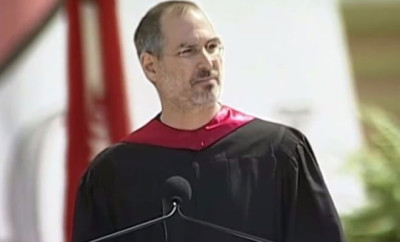
The Motivation Question
Everybody asks motivation questions. Don’t you? Business owners, managers and leaders are forever asking, “How can I better motivate my people?” Coaches, therapists and consultants are always looking for newer and better motivation techniques. “What can I do to improve the quality of my skills in being persuasive in motivating people to do better, be more consistent, take more responsibility?” Employees, athletes, top performers and sales people are also inquiring, “How can I turn up my motivation for the things I believe are important?”
It’s as if we all intuitively know that the higher quality of our motivation, the more consistency in our motivation, and the more intensity and passion in our motivation means higher quality of life and performance. We know this because the opposite of motivation is what? De-motivation, procrastination, not feeling in the mood, fear, apprehension, the “what ifs,” excuses, questions about what we’re doing, lack of congruency, and so on. And are not these the things that undermine life and passion and make us question ourselves? “What’s wrong with me? Why can’t I get excited about this? Why can’t I do what I know to do?”
Yet what is this thing called motivation that we know we need and inquire about constantly? The first problem is that it sounds like a thing, a monolithic thing. Yet it is not. And in spite of the fact that a tremendous model was pioneered sixty years ago about motivation, and in spite of the fact that most people even know about the model, hardly anyone knows what it means or how to use it.
“That’s an exaggeration and over-statement!” Really? Then consider this.
A long time ago Abraham Maslow realised that all motivation is not the same, that there are not only different intensities and degrees of motivation, but more importantly that there are levels of motivation. Using the discoveries of developmental psychology, he even traced out the hierarchical nature of motivation from survival needs, safety needs, social needs, self needs, to the highest of needs, self-Actualisation needs.
“Oh yes, I know about that.”
Yes, but do you really? Do you also know that while Maslow said that the lower needs are prepotent to the higher. That is, they come first and are more demanding of our attentions and energies? And because they are hierarchical, as they are gratified, they give way to the next level of motivation. Yet they never go away. At any moment in time our needs for food, water, air, sex, etc. is still operational and can be re-accessed. That’s why even people who have progressed to the self-Actualisation needs of knowledge, beauty, music, contribution, meaning, contribution, etc. can quickly be jarred back into the raw and brute needs of survival.
Sometimes it only takes the smallest of set-backs to do this. A person with an abundant income and living the good life can get word of corporate shake-up and within hours can “be back on the streets” desperately worrying about keeping up lifestyle. News of a life-threatening injury or illness could do the same. Threat of divorce or the ending of a business partnership could do it. At one moment a person could be living at the growth and being level of self-Actualisation, and in another living back at survival needs or safety needs or social needs. We have seen this with the collapse of Worldcom and as we see multi-millionaire dollar a year Enron executives, Kenneth Lay and Jeffrey Skilling, handcuffed and sent to trial and prison.
What motivates you? What drives you? What passions stir within your heart? These motivation questions not only explore the specific content of what you want, what you are going for, what satisfies your inner spirit, but they also reveal the level of experience you are living at.
At what motivation level do you live and operate?
Maslow separated the lower or basic needs as deficiency needs and the higher as being or growth needs. Why? Because different mechanisms govern each. In the lower, need, neediness, deficiency, and lack drive things. We want. We lack. When we then gratify the need, we feel satisfied and fulfilled. The lack goes away. We lose our motivation. We even experience post-gratification forgetting as we forget how driving the motivation was.
In the higher, there’s no “need” as such. What drives us is a desire to be more, experience more, know more, give more, express more, and discover more. There’s no “purpose” as such in the sense of an immediate desperate goal as with the lower motivations— I need food or water, or safety, or friendship, etc. In the higher level, we just want to be and become. What a different motivation! Rather than lack and deficiency, abundance and expressiveness drives us. We want to be all we can be, actualise all of our potentials and possibilities. This is what Maslow called self-Actualisation.
At what level do you live? How much of your mental-emotional time is lived to be and become? How much is lived to fill up a lack, a deficiency? The strange thing is that each creates a different set of lens or perceptual filters for us. When we live at the lower needs level, we see and perceive things, people, and experiences through the lens of deficiency and so are more protective, defensive and ego-invested. We are also more fearful, competitive and insecure. When we live at the higher levels, we see and perceive things, people and experiences through the lens of abundance and expressiveness. We are more in the mood to give and contribute. Talk about a different motivational world!
I write all of this to re-introduce an old model that is much more relevant and practical and powerful than most people dare to suspect. I have myself come to re-discover the motivational model of Maslow and in doing so have begun to extend and expand it especially relative to coaching the unleashing of potentials which is the heart and soul of Meta-Coaching.
Executives, leaders, entrepreneurs, parents and, in fact, all of us are still trying to understand what and how we are motivated and what competencies we have in word and deed for facilitating the motivation of others. Maslow developed his Motivation Model by studying “the healthiest and most creative of human specimens” rather than those who were sick and traumatised (which was the subject of psychology before him). In studying the bright side of human beings, people at their best instead of their worst, Maslow completely turned psychology upside-down and in the process revolutionised business, management, leadership, education and so on.
“How?” you ask. He did so by showing that the dark and ugly side of human nature is not innate. It emerges only when people’s basic needs are blocked, sabotaged and interfered with. Maslow started the Human Potential Movement based on one idea—people are basically good. Treat them well and enable them to be able to satisfy their needs, and they have an innate tendency to want to learn, grow, develop and experience the best version of them that they can. Self-Actualisation is the basic growth principle that drives and motivates us all. Yet it can be wounded, sabotaged, and distorted.
Now, how about that for a new model of motivation? Talk about a paradigm shift. What new visions arise from that for leaders, business owners, coaches, parents, educators, therapists, etc.! This means that the problem with people, the problem with people being nasty and obnoxious, lies not in their nature, but in the poor quality of their experiences. Deficiency at the deficiency level of needs creates desperateness. The solution? Enable and empower people to be able to satisfy their basic needs. The needs are not bad, they are just requirements for growth.
This is the motivation question. What motivates me? At what level of motivation do I live? How well have I learned to satisfy my lower needs so that I can live at the higher levels? What does this say about how I seek to motivate those I live and work with?







